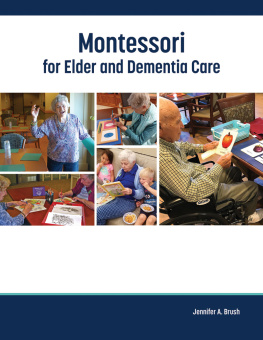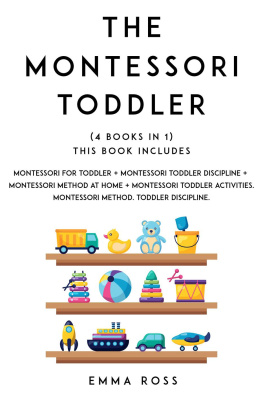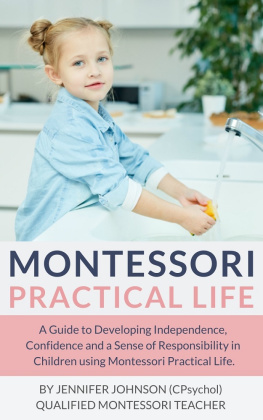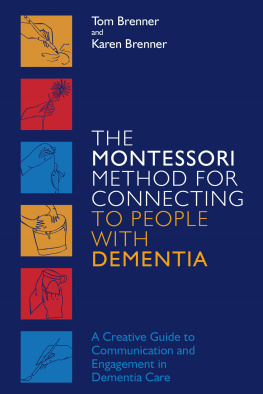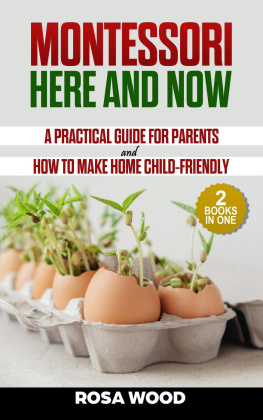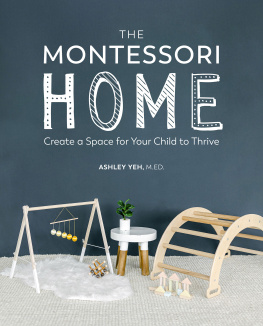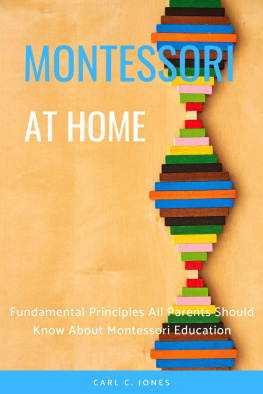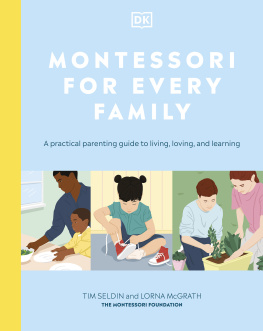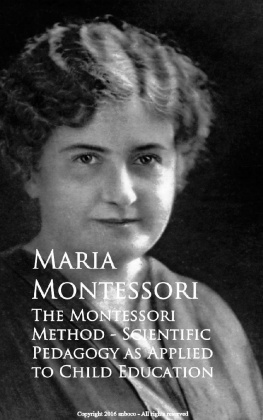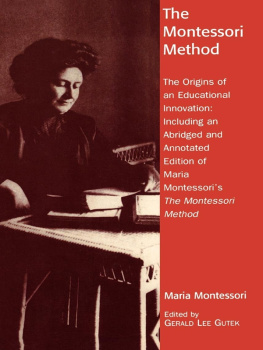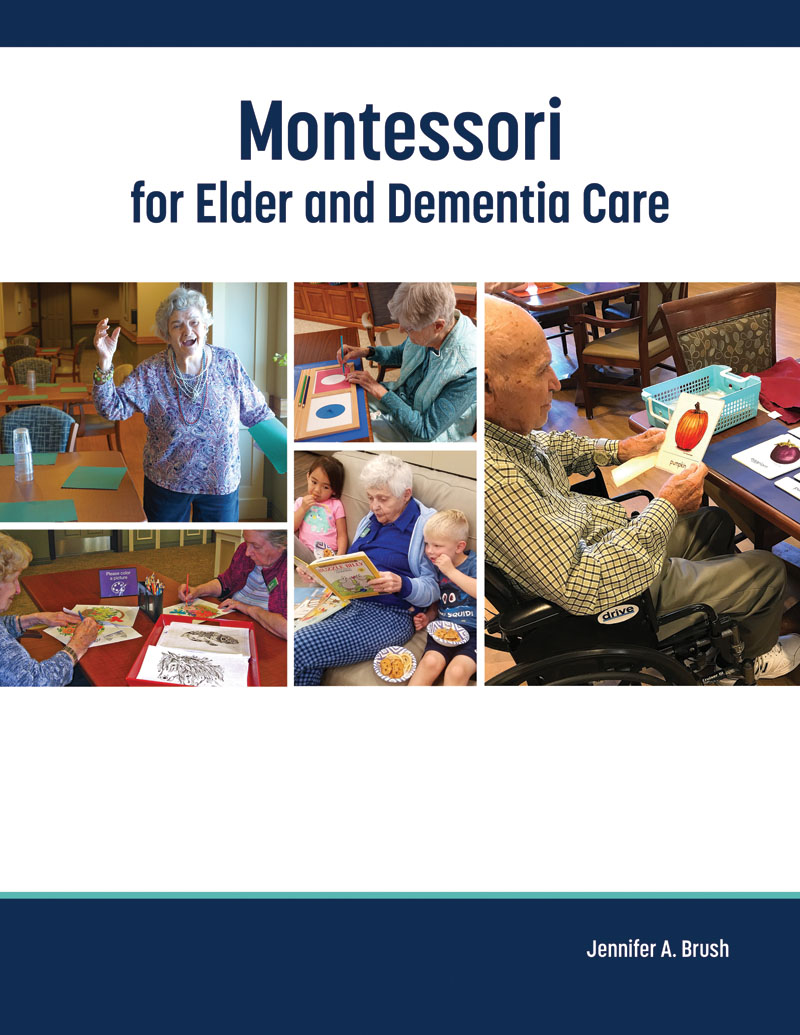

Health Professions Press, Inc.
Post Office Box 10624
Baltimore, MD 21285-0624
www.healthpropress.com
2020 by Jennifer A. Brush
All rights reserved.
Interior and cover design by Unity Design, Inc.
Type set by Unity Design, Inc.
Manufactured in the United States of America by Versa Press, Inc., East Peoria, Illinois.
Library of Congress Cataloging-in-Publication Data
Names: Brush, Jennifer A., author.
Title: Montessori for elder and dementia care / Jennifer A. Brush.
Identifiers: LCCN 2020023289 | ISBN 9781938870897 (paperback)
Subjects: LCSH: Montessori method of education. | Older people--Care. | Dementia--Patients--Care. | Patient-centered health care.
Classification: LCC LB1029.M75 B78 2020 | DDC 371.39/20846--dc23
LC record available at https://lccn.loc.gov/2020023289
www.brushdevelopment.com
Contents
About the Author

Jennifer Brush, M.A., CCC/SLP, is an award-winning author, dementia educator, researcher, and consultant. Passionate about enriching the lives of people with dementia, Jennifer is on a mission to put the focus of care on the persons preferences, interests, and abilities.
Jennifer has three decades of industry experience, including leading countless live national and international trainings, facilitating ground-breaking research, and managing innovative person-centered care projects. She serves on the Association Montessori Internationale (AMI) Advisory Board for Montessori for Dementia and Aging, was the first AMI Certified Trainer for Montessori for Dementia and Aging in the US, and was one of the first three Certified Trainers in the world. Jennifer is the author of several nationally recognized books on dementia, as well as numerous articles.
Contributing Authors
It takes a team, and our team of book contributors comprises leaders in the fields of aging, dementia, and Montessori.
Natalie Douglas, Ph.D., CCC/SLP, is an Associate Professor in the Department of Communication Sciences & Disorders at Central Michigan University. She completed her B.S. and M.A. degrees at Ohio University and after a decade of clinical practice as a speech-language pathologist in hospital and long-term care environments, completed her Ph.D. at the University of South Florida. Her research aims to advance best, person-centered practices in communication and quality-of-life interventions for people with dementia, aphasia, and other acquired communication disorders in adults. She additionally works to empower local healthcare teams to support quality improvement initiatives and person-centered care through applying principles of implementation science.
Margaret Jarrell, M.Ed. , is a Certified Practitioner and Certified Auxiliary Educator in Montessori for Aging and Dementia through AMI. She works on a variety of projects for Brush Development, including teaching and training, coaching, and curriculum writing.
Margaret earned a B.A. in Developmental Psychology from Duke University and a Masters in Education from Marymount University. Her Elementary Montessori teaching credential is from the Institute for Advanced Montessori Studies, and she was a Lower Elementary Montessori classroom teacher for twelve years before moving into administration and consulting.
As both a Montessori student, and now a Montessori parent, Margaret has seen firsthand how Dr. Montessoris philosophy and methods nurture and support peoples natural love of learning, desire for independence, innate drive to do meaningful work, and need to serve with purpose as a member of a community.
Rev. Katie Norris, M.Div., is a brain health coach and owner of Recourse Health and Fitness Coaching. She is also the co-founder of the Carolyn L. Farrell Foundation for Brain Health. Her community ministry is devoted to helping people optimize their brain and body so they can live life to the best of their ability, with meaning and purpose. Rev. Katie has worked tirelessly for years to raise awareness and end stigmas associated with brain health issues, through community outreach and public speaking.
Rev. Katie attended Montessori school through eighth grade and is the mother of a Montessori child. She was the first person in the U.S. to earn the AMI Practitioner Certificate in Montessori for Dementia and Aging. Together with Jennifer Brush, she is the co-author of Creative Connections in Dementia Care: Engaging Activities to Enhance Communication (Health Professions Press, 2015).
For More Information
Brush Development is a research and consulting firm that helps healthcare organizations and families create environments where elders can flourish. The team offers live and self-paced online classes, in-person workshops, design consulting, and award-winning books to support care partners and people with dementia. Learn more at www.BrushDevelopment.com.
Section 1 | Introduction

Brush Development Company
Do not tell them how to do it. Show them how to do it and do not say a word. If you tell them, they will watch your lips move. If you show them, they will want to do it themselves.
Dr. Maria Montessori
Person-Centered Best Practices

Courtesy AMI,
montessoricentenary.org
Maria Montessori was an Italian physician and educator who pioneered an approach to education that builds on the way children naturally learn. She created learning environments for children in which everything was suitable for their stage of development and where obstacles to learning and development were removed. She observed how children absorb knowledge from their surroundings, essentially teaching themselves. Through scientific study, she designed learning materials that nurtured childrens natural desire to learn. She was an innovator, feminist, and idealist who believed that the path to world peace was through education of children.
Dr. Montessori did not design environments for older adults, but researchers, clinicians, and architects have contributed to a large body of evidence that has resulted in aging and dementia care guidelines. This guide combines Dr. Montessoris philosophy of learning and living with person-centered aging and dementia care best practices. Through many years of experience as clinicians, researchers, Montessori parents, and Montessori educators, the author and her team have successfully implemented the Montessori philosophy in long-term care and individual homes throughout the world.
The result is our interpretation of Montessori for Aging:
To enable elders to be as independent as possible, engaged in a meaningful life, doing things they love, with people they enjoy, in a supportive environment.
AUTHOR NOTE: This guide offers tips and direction to care partners who wish to use the Montessori philosophy with older adults and individuals living with dementia. The author feels that in-person learning and community mentoring through the Montessori implementation process is the most effective way to impact quality of life for our elders. To that end, Brush Development offers a variety of in-person workshops and online learning to provide a firm foundation in Montessori for Elder and Dementia Care. This guide is meant to be helpful both to those who have participated in training already and to those who are interested in learning about this life-changing philosophy for person-centered engagement of elders.

